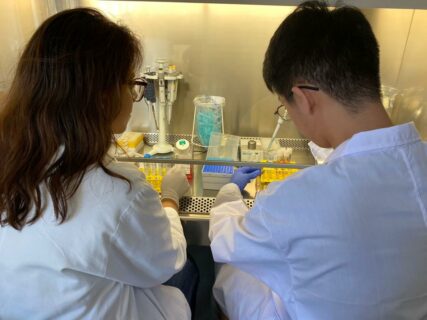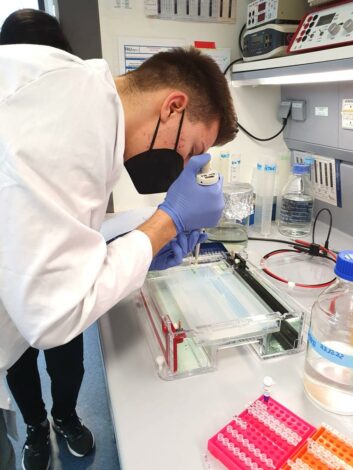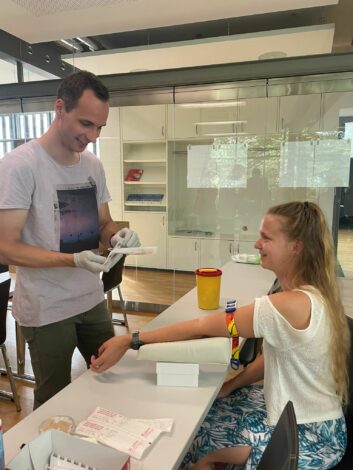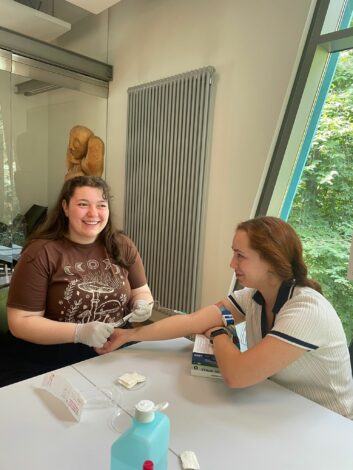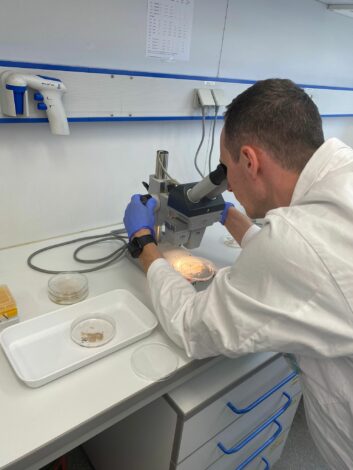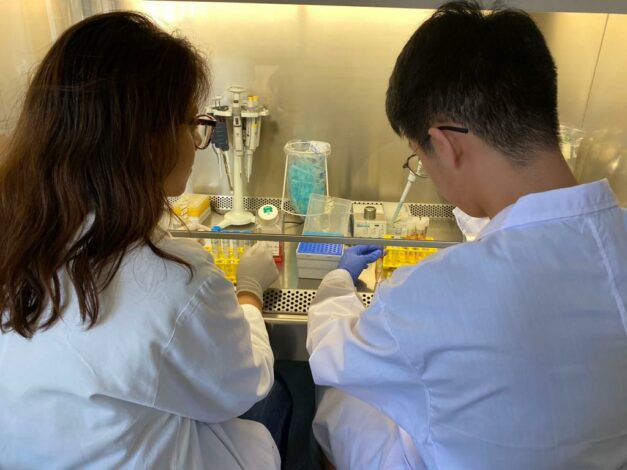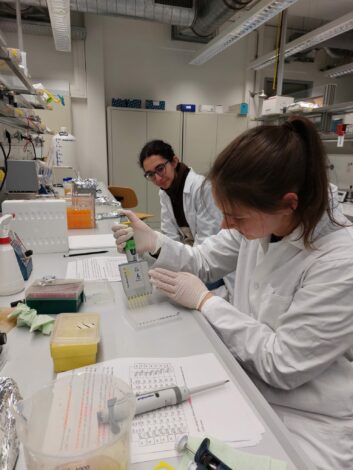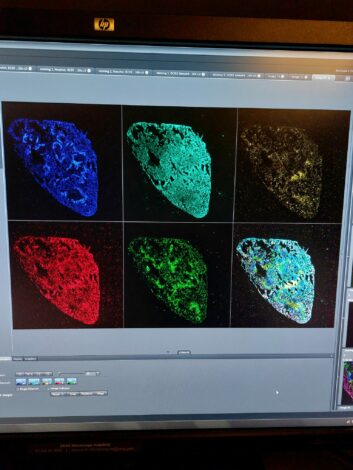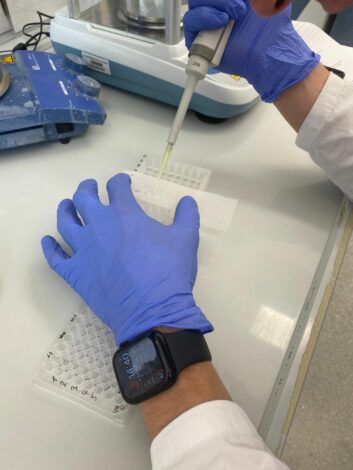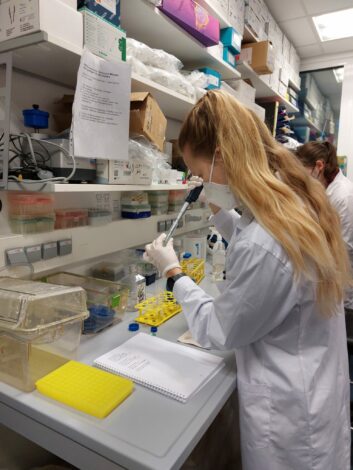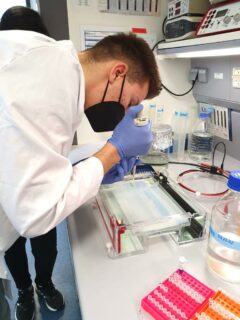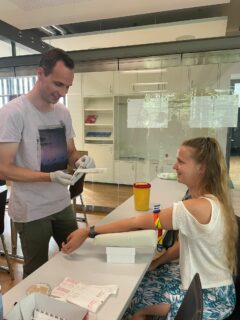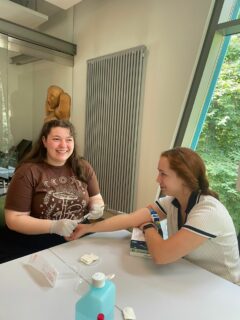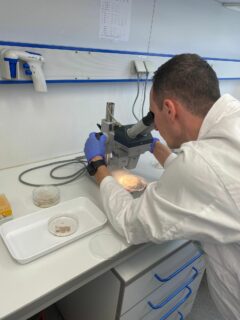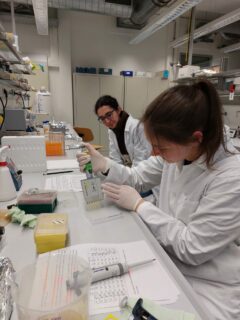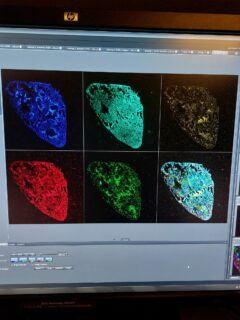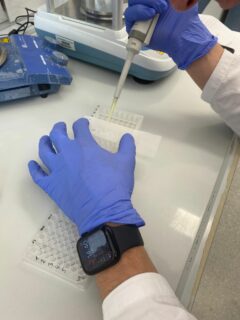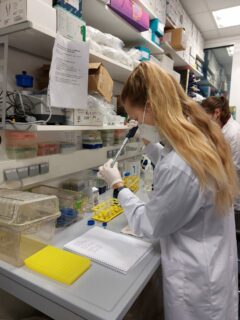Insights into the practical courses of the iImmune Master’s programme
During the programme, our students are exposed to the theory of various modern technologies in molecular and cellular biology. To complement the theoretical part of the iImmune Master’s programme, students will have the opportunity to gain hands-on experience of the various methods and workflows that a young immunologist can expect. These laboratory rotations are hosted by various research groups within the FAU. The practical course itself takes place at the end of the semester in the first year and is divided into two parts. The first part takes place at the end of the first semester and covers techniques used in basic immunological research. It is held in the BTE building at the Chair of Genetics and Dermatology on the Kussmaul Research Campus.
In the BTE building, students work on mouse T and B cells and various parameters that immunologists would encounter. Here, students learn how to dissect mice and extract lymphoid tissues, including thymus, spleen, lymph nodes and bone marrow. Using the extracted samples, students carry out experiments such as counting B and T cells using flow cytometry, measuring B lymphocyte activity by looking at calcium levels, or stimulating lymphocytes to proliferate with antigens in vitro.
In Dermatology, students are assigned to different sub-groups within the facility to work on a wide range of topics. Some students are looking at the problems of dendritic cell localisation using flow cytometry and confocal microscopy. Others are investigating the effects of sCD83 cells and their role in the differentiation of macrophages involved in wound healing. Another group will isolate and characterise plasma-derived extracellular vesicles and identify their properties using activity assays or FACS analysis, to name just a few examples.
The second part of the practical course takes place at the end of the second semester and deals with methods and techniques used in translational immunology. For this reason, the course is split between two different facilities at the University Hospital. Half of the course takes place at the Institute of Virology and the other half at the Institute of Microbiology.
During the course, students work in different research groups to learn more about virological and microbiological research in the field of immunology and how to deal with scientific questions. Here students get involved in experimenting on various topics including CRISPR/Cas9 systems, testing different viruses, exploring the role of different immune cells in IBD models, and many other topics actively studied in the two institutes.
Ultimately, our students are able to familiarise themselves with the workflow of an immunology experiment and the methodologies involved, which prepares them for their future careers and strengthens their immunological knowledge and understanding.

